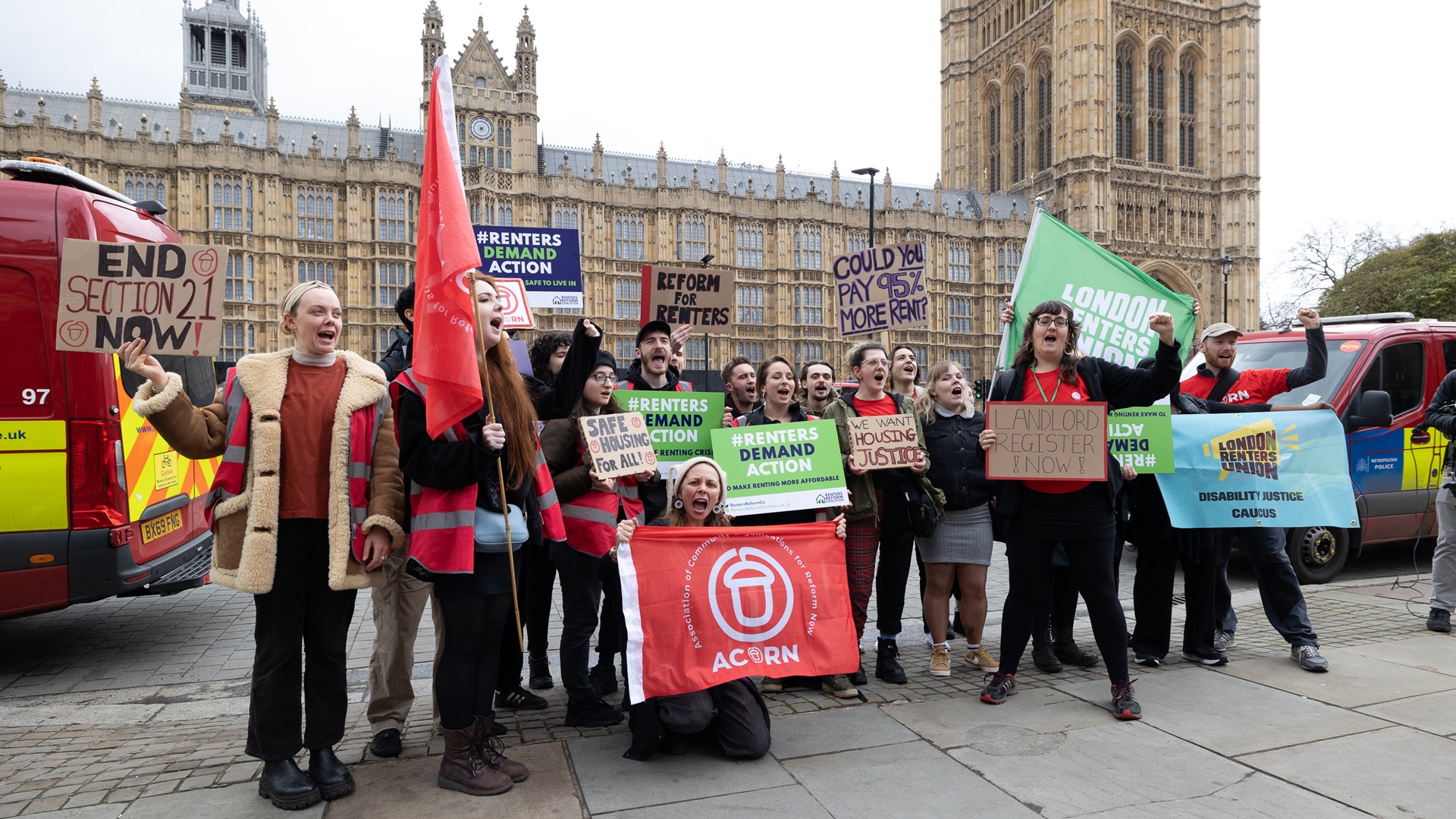Private renting in England has reached a crisis point – we spend a higher share of our income on housing here than almost anywhere else in Europe, in exchange for a worse experience, with houses that are on average smaller, older and lower quality.
The symptoms of our broken housing system are nowhere more evident than in the appalling levels of homelessness we are currently seeing. Soaring numbers of evictions have forced unprecedented numbers of people into temporary accommodation, which is often unsuitable, cramped and unhealthy. The cost of providing even this woefully insufficient service is pushing many councils towards the brink of bankruptcy.
The number of children living in these conditions, also at a record high, and all that means for their life chances, ought to be a particular source of national shame.
Meanwhile many of those who can afford a place to rent are putting their futures on hold due to the renting crisis. The basic insecurity of renting – an unaffordable rent hike or a no-fault eviction constantly dangling menacingly over one’s head – prevents renters from putting down roots in their local communities. And with almost a quarter of renters spending over 40% of their income on rent, for so many the dream of home ownership, the prospect of saving enough to put a deposit down on a home, has become little more than that – a dream.
Against this grim backdrop, the response of policymakers has been at times been maddeningly inadequate.
At the 2019 general election, all the major parties stood on platforms which offered renters a better deal and the end to section 21 ‘no fault’ evictions, the practice which underpins our unbalanced renting system by giving landlords the power to evict tenants on a whim and without a reason.









